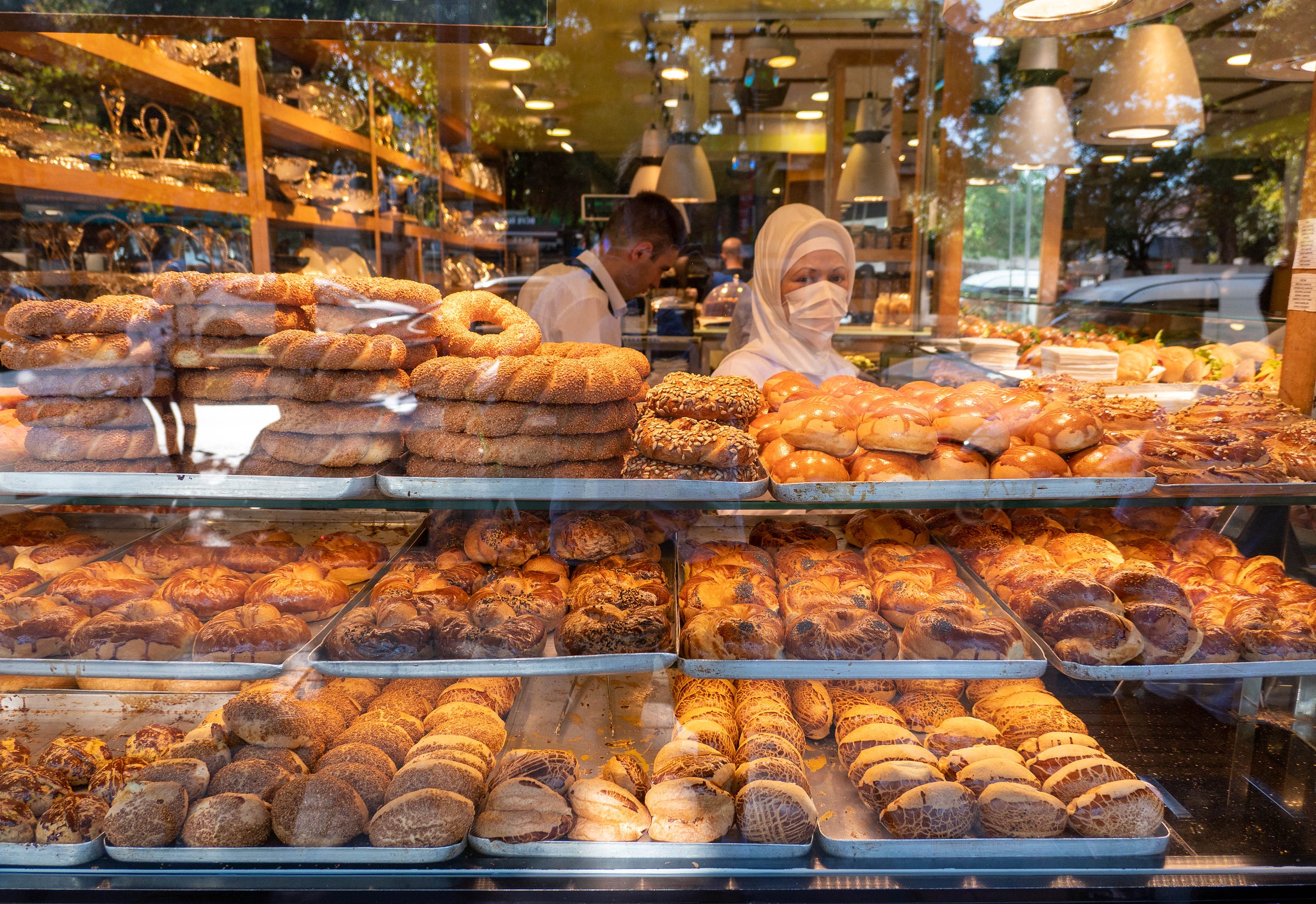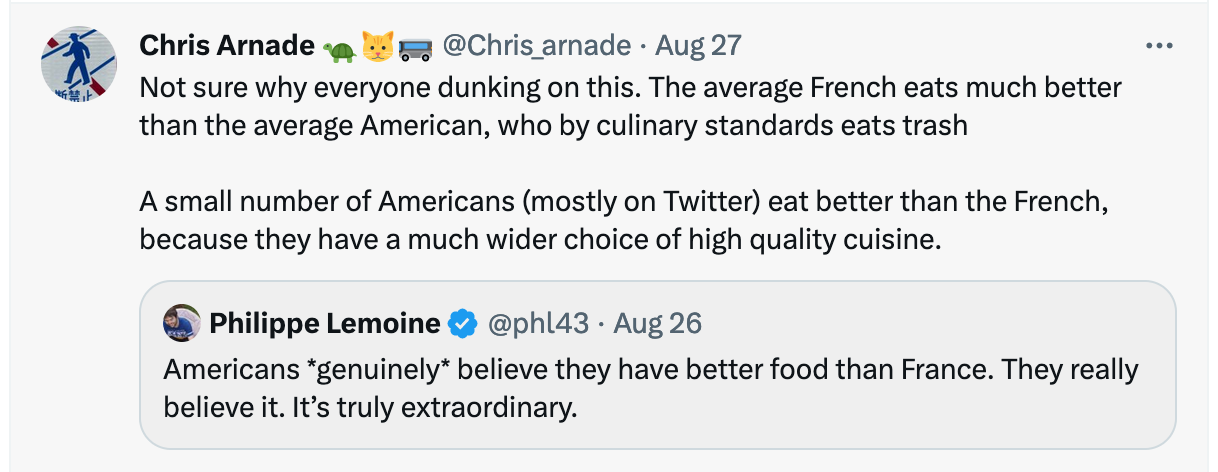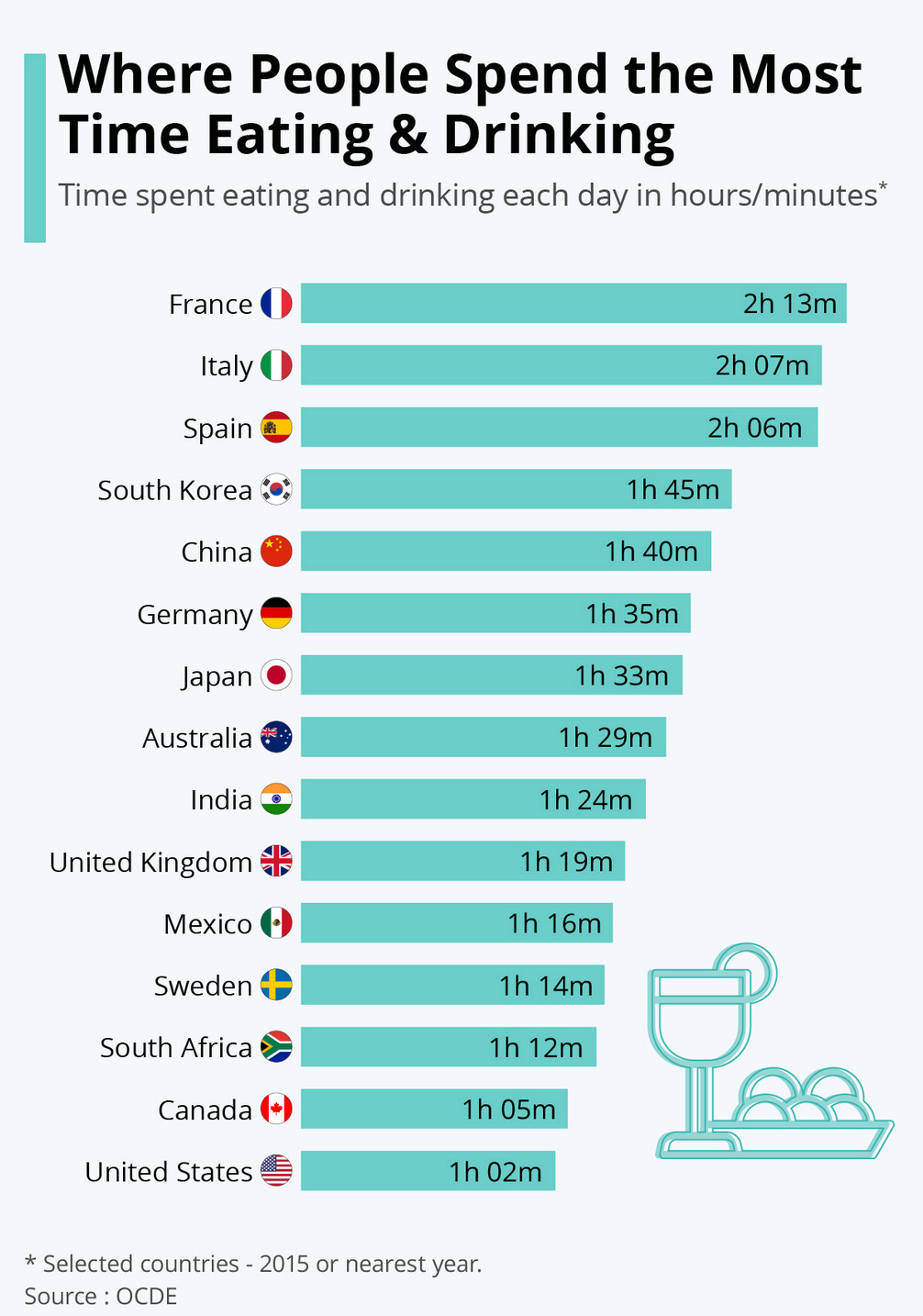Last month an off-the-cuff drunk tweet by a French guy, Philippe, living in America erupted into an online firestorm, starting weeks of dunks, arguments, and hot takes, that is still going on.
The responses fell roughly into two camps.
The first, smaller, and supportive camp, were not surprisingly other French who didn’t have much to say beyond “of course!” because what Philippe said was so obvious to them. I mean, duh, everyone knows that old joke,
“Heaven is where the cooks are French, the police are British, the mechanics are German, the lovers are Italian and everything is organized by the Swiss.
Hell is where the cooks are British, the police are German, the mechanics are French, the lovers are Swiss, and everything is organized by the Italians.”
It doesn’t matter that America is not part of Europe, because to Europeans America is worse at everything (except war), especially food.
The larger more vocal camp was Americans, mostly journalists, some angry, some amused, but both who had a lot to say, mostly in the form of quote tweet dunks. Things like, “Yeah. Sure. Try getting a Taco in Paris,” or “French food is great, if you only like baguettes and frog legs, but if you want Thai, Mexican, Japanese, and Cuban then F off.”
Then there were the funny tweets, of which the best IMO was,
My immediate take, which I tweeted against my better judgement, fell mostly into the French camp, although I tried to add a little nuance.
Otherwise I sat back and watched the fight with a smile, because that’s what I do with most twitter fights, but this one kept nagging at me, because as it unfolded and then somehow kept unfolding, I realized it was about two different cultures talking past each other, not at a thin (who has better food?) descriptive level, but at a thick level — as in, what does food, and eating, mean to us?
Which given how much I believe cultural differences matter, I came to see it as two groups effectively debating in different languages, both convinced they were right, because in their own way, both were.
The pro-US arguments boiled down almost entirely to pointing out that we have a huge diversity of restaurant choices. Which is a good argument, because that, at a descriptive and practical level, is the strength of US food culture
— that you can, if you really want to, get a reasonably priced good meal of almost any cuisine in the world.That argument reveals a lot about how Americans, or at least well-to-do Americans on twitter, think about “good food.” They equate it with a diverse restaurant scene, which assumes having a bunch of different options trumps ubiquitous fresh food.
It is also a rather narrow definition, because having access to a lot of different restaurants serving a lot of different cuisines is currently only available in a handful of large and mid-sized cities.
Or, to put it another way, “eating well,” as defined in the US, is primarily a niche experiential thing (“let’s get Burmese, I’ve never had that before!”), mostly confined to the well to do and intellectuals, and isn’t central to broader US culture. Not yet at least.
The reality of food in America, outside of a few high-status neighborhoods scattered around the US, is that most people don’t prioritize the varied experiences of eating at a diversity of bespoke restaurants, and so the median food eaten in the US is not from some well reviewed Indonesian place on the Upper East Side, or from that really cool Bolivian place in Alexandria.
It’s far more mundane than that, far more processed, and far less social. The far more common reality of food experience in America is someone eating drive-through alone in their car, or eating wings at the Applebee’s bar while watching the game with friends, or heating up leftovers in a microwave before work.
It’s not all a hellscape of lonely meals of processed food, but relative to the rest of the world, it is.
I hesitated to write this piece because strictly speaking I can’t outright compare US and French food cultures, not honestly. I’ve only spent about two months in France, and that was in Paris over a decade ago. I’ve yet to walk France, although I will soon.
Still, I’ve spent enough time in places like Germany, Japan, Romania, Vietnam, Turkey, and Peru, to understand how different we are when it comes to food, and to see how little it matters to us, culturally speaking, compared to almost everyone else. Including surely the French.
Food in the US isn’t central to our identities, not yet at least
. It is still largely a utilitarian and transactional thing— something necessary to get enough calories, hopefully tasty ones, to stop being hungry and keep working. That’s very different from most of the world which views meals as a social occasion that’s far more than about getting fed. At the very best they aim to be something transcendent. As if they see almost everyday as a small Thanksgiving, at least in attitude, if not in the amount of food served.For the data-heads, you can see the footprint of that in how much time per day people in different countries spend eating.
If you’ve lived outside of the US you don’t need data to tell you Americans eat quickly, and mechanically. We gulp our food down like starving beasts intent on moving onto the next thing, while everyone else takes their time, savoring the experience.
In Korea, tables rarely turn over. If I don’t get to my favorite Izakaya in Seoul by 6:30, I miss getting in, since groups will sit from six till closing, eating small dish after small dish, laughing, drinking, and generally being social.
That is even true of poorer places like Vietnam, where eating is an integral part of the culture, even though a lot of the food tracks as fast food.
The large outdoor bars and restaurants start filling up around five, and there isn’t really a lot of turnover. Tables will lose a few people now and then, but others will quickly join, and the large sprawling party ebbs and flows but almost never dies down until six hours later at closing time.
That’s just what you see out on the street. If you’re lucky enough to be invited into a family home, you see the same thing, but only with more food, longer hours, and more shots of liquor. “To your health! To my health! To Buddha’s health! To the cat’s health!”
The result of all this time spent eating together is people expect the level of the cuisine to rise to the occasion.
That is the second major difference between US food culture and the rest of the world: Farm to table isn’t just some marketing ploy for the wealthy, it’s what everyone expects, and it’s often what’s delivered. Sometimes in shocking fashion.
In a bar in Vietnam, with an attached grill, I watched a guy pull up in a moped piled high with bamboo cages, extract five screaming hens by their feet, carry them across the patio, slap them down on the cold cement floor still squawking, and proceed to cut off their heads, before handing to them to the cook yards away from me, who tossed them to two women sitting on their haunches, who plucked and gutted them. That was that evening’s special.
In Lima my daily lunch of seaweed soup and ceviche was made by three women who got their fish from a fish seller across the aisle who got it from boats that came into the docks that morning. You could walk the entire path of all the ingredients in the meal, from ocean to table, in under an hour.
And that’s in what’s considered a lower-class Lima neighborhood, not some fancy upscale part of town.
It is the same in Turkey, Germany, Jordan, and Romania, where the idea of anything but daily freshly made bread in the morning is considered a joke to throw out in the trash.
While you can get freshly made bread in almost any mid sized city in the US, that isn’t what most Americans eat for breakfast. At all. What is far more common is microwaved pre-packaged sandwiches shipped a few days earlier from a huge conveyor belt bakery a hundred miles away.
Of course, all this is a broad generalization. The US is huge with lots of variation, and a lot of subcultures, including lots of food subcultures.
Including a very strong barbecue scene, especially in the rural south.
That was the other amusing thing about the uproar over Philippe’s tweet: Almost nobody defending the US mentioned barbecue, which is odd because it’s arguably our strongest contribution to the global food scene, and one not limited to the wealthy — which is maybe why few mentioned it.
Yet if any US food scene best captures how the rest of the world, and France, understands food, it’s barbecue, where the joy of cooking is so deep, so about the social, that people do it not just for money, but for love.
Where a guy with zero credentials will spend twenty years perfecting a meal in the back of an old gas station, to impress his friends, family, and maybe, just maybe, make a few bucks out of it.
It also illustrates the difference between thin and thick culture, or the difference between doing something because you kinda like it, or because it’s a job, versus doing something because it’s central to your identity.
What does it mean to be central to your identity? I could drag out long quotes from Aristotle, Kierkegaard, Geertz, but the simpler explanation is it’s something you could put on your tombstone. It’s how you see yourself, and how you want the rest of the world to see you and remember you.
Now does barbecue really rise to that level? Would someone really put, “Made A Mean Brisket” on their tombstone? Would someone really insist, while on their deathbed, that they have a funeral repast cooked up by ten friends who toiled over hot charcoals for the prior two days?
If you live in the South, you know yes, that’s a thing, or at least something that could easily happen. If you don’t live in the South, watch a few episodes of “Man Fire Food” and you will get it. Barbecue is a life, not a hobby.
That, a life not a hobby, a craft not a job, a way of life not a means to calories, is the how the French (and almost all the rest of the world’s) views food. It is the attitude that Philippe most likely grew up with and understands, and doesn’t see in the US.
Which explains his tweet, and why he thought it was so self evident. Food is life, not a hobby. Not a bunch of experiences to collect to say, “look at all the crazy food I ate!”, but a bunch of experiences like all other experiences that adds to a full and complete life.
So to the haters of his tweet, my response is, sorry, Philippe is right, at least in the broad sense, but don’t get mad, don’t go hating on the French, instead go to Memphis, or rural Georgia, and go get some barbecue and celebrate what can be great about American food.
Then, if you’re still feeling angry, or if you’re drunk, tweet him a picture of your huge meal of ribs and slaw, and ask him if he can get that in Paris.
On Monday I leave for Asia for all of October, with most of my time in Mongolia. If Mongolia is anything like Bishkek, and I think it is at least when it comes to food, then I will have an example of my above thesis where although the food culture is important, at a social level, the food isn’t good. At least not to my tastes. Some of that is the whole fresh ingredients issue, some of that the result of a nomadic culture, and some of that is just bad taste.
I’ll also be spending a few days in Korea and then try to finish my walk across Japan. Until then, see you next week!
from Hacker News https://ift.tt/mgVMJRw





No comments:
Post a Comment
Note: Only a member of this blog may post a comment.